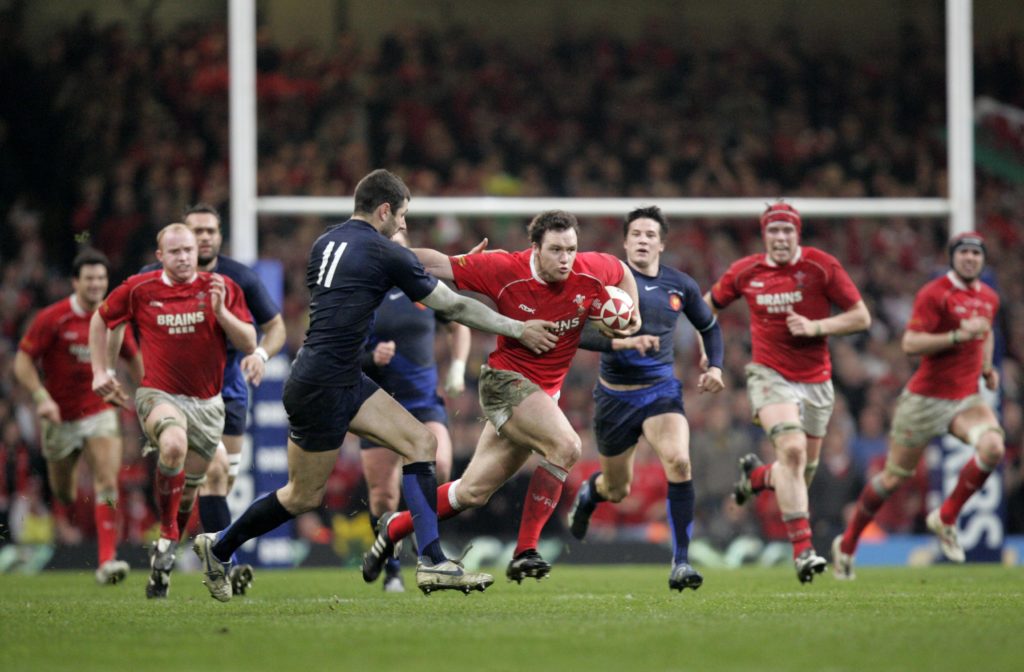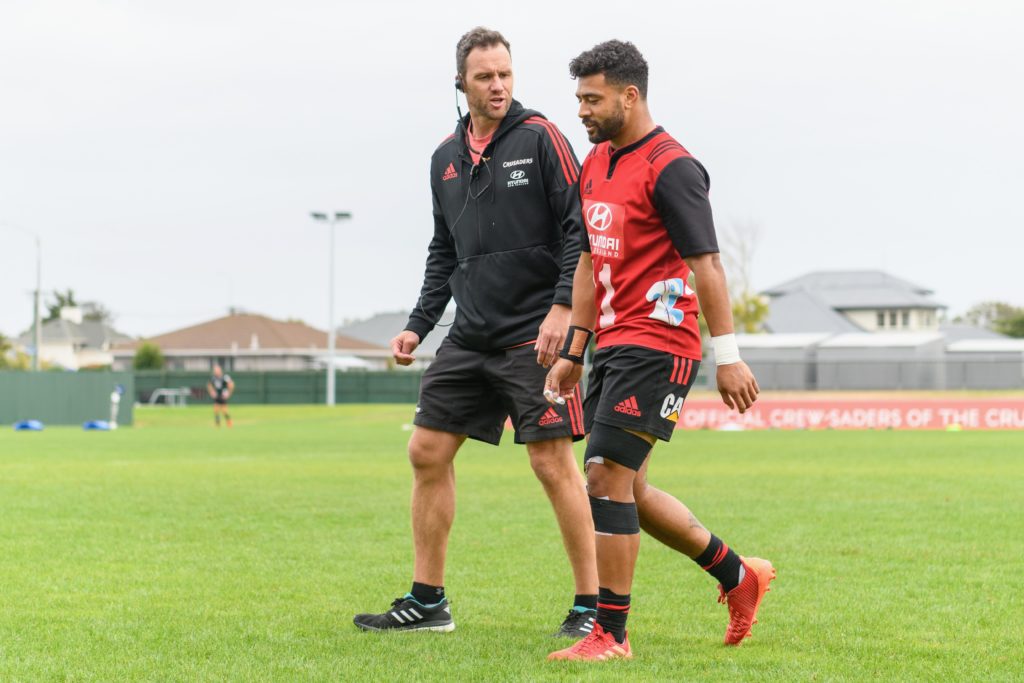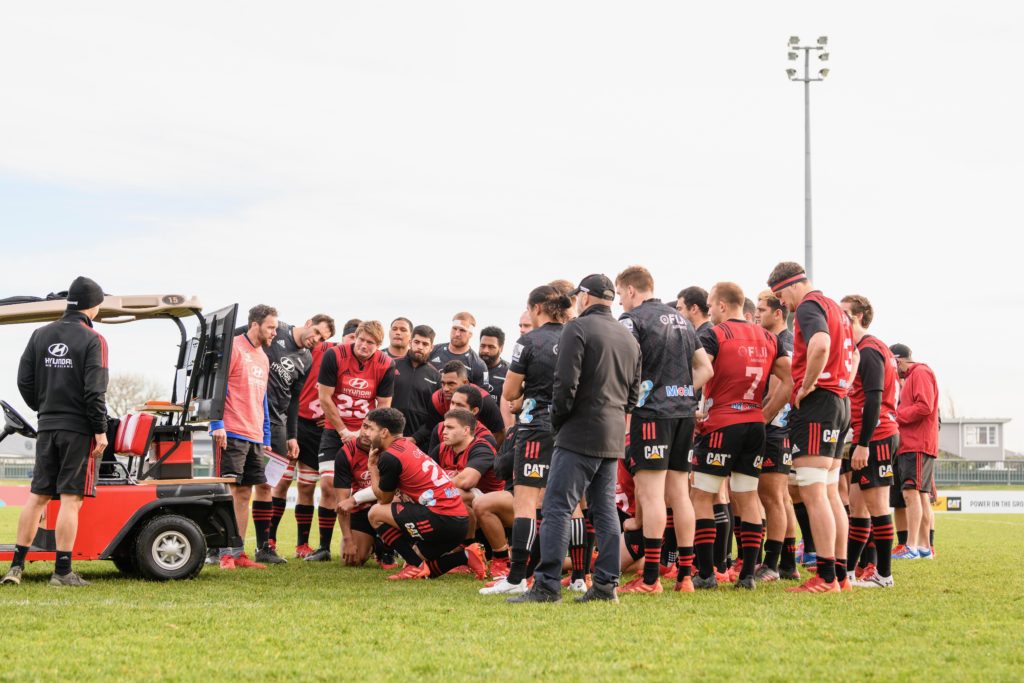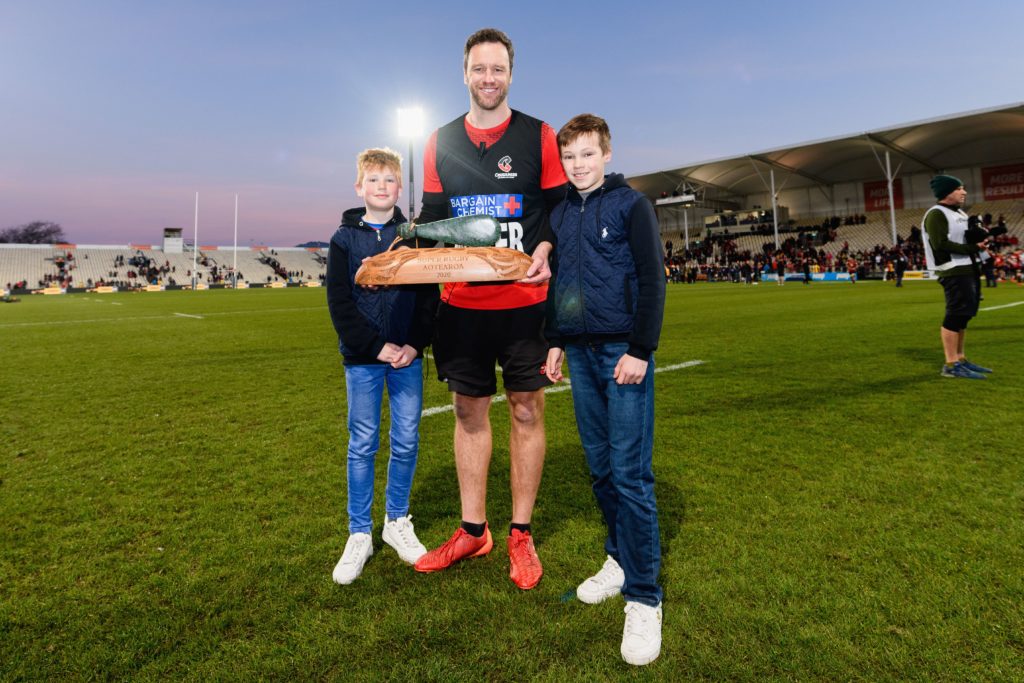The road from Neath to Colwyn Bay is a long and winding one. During the day, when the weather’s fair, you get to see Wales’ natural beauty in all its majesty. At one o’clock in the morning, when the rain is lashing down, and you’re tired and weary, it’s a different proposition.
Mark Jones knows that journey well, and can picture every twist and turn. It was his commute for three years, and there were times during his stint as head coach of RGC, the putative North Wales region, that he found himself hunkered down behind the steering wheel, wondering if it was all really worth it.
After 17 distinguished years at the Scarlets as a player and a coach, he’d turned down more lucrative roles at higher profile clubs to take the reins in Colwyn Bay, an environment where he’d be under a bit less pressure, and have a bit more breathing space.
So he’s used to long journeys to work, but the 180-odd miles between Neath and Colwyn Bay pale into insignificance compared to the twelve thousand he’s since travelled to take on his new job. He’s the defence coach of the world’s best club side, the Canterbury Crusaders, and has recently helped them become Super Rugby Aotearoa Champions, sweeping to victory in what is surely the world’s most competitive rugby league.
As the only Welshman ever to have a Super Rugby title on his CV, it seems those long nights traversing Wales from north to south had a greater purpose.
Reflecting from Christchurch, Jones recognises the benefits. “It was a good opportunity to work with a group of players who genuinely wanted to be moulded. I’d always been an assistant coach. This was an opportunity to go and manage people on a different level; to go and manage a medical department, build a relationship with an S&C coach, deal with a chief executive. And because it wasn’t Pro14 or European level, there was an opportunity to make mistakes, and not be afraid to try things. I’m a much better assistant coach now, because I can see things through a head coaches’ eyes. I understand his pressures, and his decision making processes because I’ve stood in those shoes for a bit.”
It wasn’t long before the boys were pulling up clips on YouTube, having a good laugh at me nearly scoring that greatest try that ever was in the Six Nations
Jones’s international playing career spanned eight years, during which he won 47 caps, and was a key member of the 2008 Grand Slam winning side. He’s a sociable, gregarious bloke, but he never sought the limelight which shone so brightly on his fellow wing, Shane Williams. Asked if the Crusaders players knew of his background, he admitted a few didn’t, but said that the internet quickly filled in any gaps.

“When I was introduced, Scott gave a little bit of a bio about who I was, and it wasn’t long before the boys were pulling up clips on YouTube, having a good laugh at me nearly scoring that greatest try that ever was in the Six Nations. They found that hilarious.” The “try” in question was during the Grand-Slam clinching game against France in 2008, when Jones, after receiving a pass on his own try line, ran the entire length of the field only to be hauled down inches short of the line.
The Scott he speaks of is Scott Robertson. The eccentric, break-dancing, maverick head coach, whose unorthodox methods have delivered the Crusaders four Super Rugby titles. His success almost landed him the All Blacks top job, which came down to a choice between him and Ian Foster. Lauded as one of the world’s most innovative young coaches, his methods have opened Jones’s eyes. “He’s a very visual coach, who likes to see pictures as opposed to text. He always wants information delivered positively, to focus on what we do well, and to keep morale high. He likes to create a story behind each game, and to develop a theme – something to drive the energy around the group. Most modern coaches like to do that, but he takes it to a much deeper level.”
When asked to elaborate, Jones revealed how a recent game’s preparation centred on Roger Federer, and how his attitude, approach and mental fortitude could be translated to the rugby arena. Robertson set Jones a task of putting together a Federer-themed defence presentation.
After firing up his imagination, Jones decided to use Federer’s first serve as a metaphor. “He had a great first serve, and used to put his opponents under a huge amount of pressure because of it’s consistency. My presentation was based around that – our defence is going to be as good as Federer. We’re going to put them where we want them off our first phase defence.
“He’s a very visual coach, who likes to see pictures as opposed to text. He always wants information delivered positively, to focus on what we do well, and to keep morale high.
Mark Jones on his Crusaders head coach, Scott Robertson
Scott went away that night, thought about it, and he came in the next day and said ‘it’s not really the serve though is it, it’s the return of serve, because they’re coming at us from the set piece.’ He was right, so I went away and got a load of clips about Federer’s return of serve, and built the presentation around that. It’s just one example, but it’s an insight into how deeply he thinks about these things, and how what might seem trivial is actually very important.”
As a winger blessed with jet-heeled pace, and a radar for the try-line, Jones has naturally been inclined towards thinking about attack, certainly from a coaching perspective. This role – focusing primarily on defence – has placed him slightly outside his comfort zone. Working with a backline brimming with ludicrously gifted players, he’s aware that his contribution is to tweak and to finesse, rather than to deconstruct and remould. How, for example, do you approach such a prodigious talent as New Zealand fly-half, Richie Mo’unga?

“I’ve always been a believer in the idea of understanding before being understood. Coaching is about knowing what to say to whom, and at what time. With Richie, there’s a perception that he’s not a very big guy, and there’s an opportunity to run at him and test him defensively, but if you watch the way he plays the game in attack, he’s always looking to be in the thick of it, and he plays right in the teeth of opposition defence. This is not a guy who’s frightened of physical contact, so it wasn’t a case of trying to hide him somewhere on the field because he’s soft minded around defence.”
With Richie, there’s a perception that he’s not a very big guy, and there’s an opportunity to run at him and test him defensively, but if you watch the way he plays the game in attack, he’s always looking to be in the thick of it.
Mark Jones on Crusaders lynchpin, Richie Mo’Unga
On the contrary, Jones wanted to give extra defensive responsibilities to a player already renowned as a devastating attacker. “It was more a case of ‘I’m going to back you, I’m going to put you in the D line where the attack’s going to know you are, and we’re going to prepare you as best we can each week by showing you the opposition pictures.’ People have commented on his defensive work his year, and I think it’s because we’ve given him the confidence he needs. We do a little bit of technical work, but not a great deal. He’s bringing his personality to it, he’s a tough cookie, and he’s put in some great cover tackles in this year.”
When the owner of rugby’s most famous mullet took the clippers to his iconic locks during lockdown, Jones worried it might have had a Samson-esque effect. But Jack Goodhue’s performances continue to garner praise, and his appetite for defence is as healthy as ever.

“Jack’s a brilliant defender, but he still wants to get better. I can’t just say you’re an All Black, Jack, I’ll just leave you to get on with your own tackling at the end of the session. I’ll make that conscious effort to bring over a young centre, and we’ll do a couple of reps on some low tackling or some swiping off, whatever the boys need to work on. You let Jack drive it, but just pick him up if there’s anything that he’s not doing, and if there’s something he’s doing particularly well, you just make sure he understands that he’s doing it. He’s really honest – if you go to him with an idea of changing something, he might say “I like that, Jonesey” or he might say “do you know what Jonesy, I think we’re just changing it for the sake of it.”
The Lions is a British and Irish thing, so if there are British and Irish coaches that are capable of doing those roles, they should do them. However, if you’re asking me if Razor’s good enough to do it. 100% he’s good enough to do it.
Rugby may be a global sport, but it’s highways and byways criss-cross regularly. Mark Jones left the Scarlets shortly after Wayne Pivac arrived. Pivac’s successor was Brad Mooar, who learned his trade in the same Crusaders team that Jones is now a part of. Mooar is now back in New Zealand as an All Blacks assistant while Pivac has assumed control of the Welsh national side. So it’s probably not a huge leap to imagine Scott Robertson pulling on a Lions tracksuit next summer as one of Warren Gatland’s assistants. But when Robertson revealed that he’d offered his services to Gatland, a fiery debate erupted on social media. Jones has a firm, but diplomatic take on the issue:
“The Lions is a British and Irish thing, so if there are British and Irish coaches that are capable of doing those roles, they should do them. I’m adamant about that. However, if you’re asking me if Razor’s good enough to do it. 100% he’s good enough to do it. He understands southern hemisphere rugby, and as long as the mix is right then you should involve somebody like that on the trip.”

As for Jones, he’s happy adding several more feathers to his own bow in a bucolic, agricultural paradise, that isn’t dissimilar to the part of Wales where he grew up. Rural Powys and rural Canterbury have much in common, both regions populated by rugged rugby-loving types, who love to get behind their own. What they don’t share is an accent. Jones jokes that his strong Mid-Walian brogue earned him an early touchline ban from Scott Robertson, in case the messages got lost in translation. Eight months in, and his mission to spread the Welsh gospel is gathering momentum. “The boys like the accent, and a lot of the staff now greet me with a “bore da” or a “prynhawn da” which means they speak about as much Welsh as I do. I said “diolch yn fawr” to one of the commentators during the TV coverage, and loads of the boys were ripping into me on the texts, saying I don’t even speak Welsh. But it’s the effort that counts, isn’t it? I try to wave the flag around the world as best I can.”


Comments
Join free and tell us what you really think!
Sign up for free